- Home
- Sarah Woodbury
The Renegade Merchant Page 2
The Renegade Merchant Read online
Page 2
“Oh good. Maybe they came upon the person bleeding on the ground and helped him.” Gwen drew Gareth’s attention to the rosary. “A good Samaritan might wear this.”
Gareth grunted his approval as he crouched beside her. “I was starting to feel guilty about taking you away from Tangwen.”
“She’s fine,” Gwen said. “Gwalchmai is teaching her to sing scales.”
“A worthy endeavor.” Gareth smiled and made a motion as if to touch Gwen’s belly, though he withdrew his hand at the last moment, since there were so many people around. “I look forward to the day that Tangwen can do the same for this child. Perhaps he will be a great bard like his uncle and grandfather.”
“That will be a great day,” Gwen said—and meant it, even as her stomach twisted a bit at the thought.
Until their departure to Shrewsbury, she’d lit a candle every day that this time she would give Gareth a son. Gareth swore it mattered to him not at all, but she knew what having a son meant to him and to every man. Hywel already had two. King Owain had a dozen, effectively ensuring his legacy into the next generation. She and Gareth had two foster sons, Llelo and Dai, both of whom were serving in Prince Cynan’s retinue, but the boys had come to them at ten and twelve. It would be a different matter entirely for Gareth to hold his infant son in his arms and name him for his own.
Gareth didn’t note her sudden silence and said, “Trust you to be the one to find something useful. If those fools weren’t moderately helpful blocking onlookers from coming into the alley, we’d be better off without them.”
Gwen didn’t disagree, and she didn’t tell her husband that Luke’s and Alfred’s opinion of him was equally low. Instead, she pointed to the two ends of the rosary. “See how the ties came undone rather than breaking? This wasn’t pulled off in a fight—or if it was, it was loose to begin with.”
Because the thong was knotted at the ends before the two ends had been tied together, the beads hadn’t come off the string. It was the normal way to make a rosary. Gwen owned one very much like it, as did Gareth.
“If the rosary and the blood belong to the same person, he wasn’t wealthy—or at least he didn’t show his wealth with expensive beads,” Gareth said.
“A rosary and a pool of blood should never go hand-in-hand,” Gwen said.
“More likely, the rosary has nothing to do with the blood at all because it belongs to one of the monks at the abbey.” Gareth was referring to the Abbey of St. Peter and St. Paul, located to the east of Shrewsbury, outside the city walls. It also happened to be the place where they were staying, in the abbey guesthouse.
“We can show it to the hospitaller and the abbot.” Gareth leaned in to pick up the rosary, his expression thoughtful, and he let the beads run through his fingers, as if he was saying his morning prayers.
Gwen shook her head slightly, still somewhat bemused that they were here in Shrewsbury at all, much less embroiled in an investigation within a day of their arrival. Ten days ago they’d been enduring the gloom at Aber when Meilyr, Gwen’s father, suddenly took it upon himself to wring permission from the king to travel to England on the trail of his as yet unacknowledged daughter, Adeline. She’d died alongside Cole Turner last autumn in the run up to the initial attempt to take Mold Castle.
Permission had been granted, if reluctantly, and they’d taken the ride from Aber to Shrewsbury slowly, enjoying fully the leave from their duties they’d been given. The fine weather had meant that Gwalchmai, despite being fifteen and a man, had spent much of the journey scampering about, Tangwen either running after him or on his shoulders as they explored the terrain on either side of the road. Gareth and Gwen had enjoyed long bouts of uninterrupted time to talk, and her father had been in full spate, composing songs while on horseback and regaling them with the results of his labors in the evening.
In fact, it had been the first time in nearly four years—since that fateful day when Gwen, Gwalchmai, and Meilyr had traveled north at the invitation of King Owain—that they’d been anywhere together as a family.
Gwen could remember, as clearly as if it were yesterday, the moment when she realized it was Gareth crouched over the body of King Anarawd. She often thought back to that day—recalling the way, between one breath and the next, her life had been transformed. For King Anarawd—and possibly for this poor person who’d shed his lifeblood on the ground—change had meant death. But for the living, it was important to remember that change wasn’t always bad.
“If anyone was going to act like the good Samaritan and help the victim, it would have been a monk,” Gwen said. “As far as I know, however, few ever leave the abbey proper—at least, that’s what one of the guests told me last night at dinner. And surely we would have heard if one of the monks had brought a man who was bleeding to death into the abbey.”
Gareth shrugged. “If the rosary has no connection to the victim, then at least we can do our good deed for the day by returning it.”
Chapter Three
Gwen
Gareth held out his hand to Gwen to help her rise to her feet. “Before I send you back to the monastery, let me show you the tracks.”
Gwen went willingly, not because she didn’t want to be with her daughter, but because she’d barely sunk her teeth into this investigation, and she wanted to continue at Gareth’s side.
Two of John’s men were sifting through more debris that had accumulated on the ground on the other side of the pool. Recognizing one of them as Oswin, the young man who’d come to fetch her from the monastery, Gwen spared them a glance and a smile and then turned her attention to the tracks. They looked nothing unusual to her. “What are you seeing that I’m not?”
“To begin, these weren’t made by a handbarrow, of which I’ve seen many in the day we’ve been here. The distance between the wheels is too wide for that. The cart was pulled by a horse. You can see hoof prints in between the tracks all along the road, since the horse got its hooves bloody too.”
“That means the owner is either a farmer who brought hay or food into Shrewsbury to sell, or a wealthier resident of the town,” Gwen said.
“Or from the abbey. They have horses and carts.”
“Or from the abbey,” Gwen amended. “You’re right about the handbarrows. I have seen far more of them than horse-drawn carts. They’re easier to maneuver along these narrow streets.”
“And,” Gareth continued, “like any wheel that’s been in use for a while, each of the four has a distinctive rotation.”
Back before she’d started working for Hywel and had married Gareth, the idea that a wheel track was worth paying attention to would have seemed a preposterous notion. Now, as Gareth traced what he’d observed with one finger, she acknowledged how much they could discern from common things. She’d learned, over the years, that solving a crime sometimes meant looking at the everyday and seeing what others didn’t.
“One of the wheels is missing its metal rim,” she said.
Gareth shot her a grin. “It looks that way to me too.”
“And one of the wheels is narrower than the other three—not by much, but enough to notice when you look at them side-by-side. Maybe at some point the owner had to replace the original.”
“I don’t know how John will feel about inspecting every cart in Shrewsbury,” Gareth said, “but if we find the right one, and it one of the wheels has blood on it, we’ve found our cart.”
“I must point out that we don’t know if the owner of the cart had anything to do with this person’s death,” Gwen said. “It would be helpful if the tracks were left by the person who took away the body, but they could easily have been made by a passer-by, who drove his cart through the alley without knowing what had taken place in it not long before. In the darkness before dawn, he could have mistaken the blood for a water puddle and rolled through it without even seeing it—or thinking anything of it if he did see it.”
“That may be, but even if the owner of the cart is a complete innocent, he might have se
en something or someone that could lead us to the victim.” Gareth looked around him. “I’m not used to towns, and I have no idea how many people might have been out and about at that hour.”
“By the time John interviews the people who live near this street he should know,” Gwen said, “or at least have come a ways towards finding out.”
“My lord, we may have something.” Oswin lifted a hand to gain their attention. He was hardly older than Gwalchmai, with beardless chin and blue eyes.
Gwen and Gareth moved towards him, and he shifted to one side to show them what he and his companion had found: a dozen broken slats from a now-worthless crate. A few of the slats were still attached to one another, and several were stained red with blood.
Oswin pointed to one in particular, which had been splintered along its whole length and the sharp end of which bore a strong resemblance to the point of a sword. “If one man stabbed another with that, it would be no surprise that he bled out.”
“The assailant could have injured himself in the process,” said the second watchman, whose name Gwen didn’t know. He was young too, not even into his twenties, with blond hair and a scruff of beard on his chin and upper lip. “Good job gripping it without finding your hand full of splinters.”
“Perhaps that means the wounded person wasn’t actually the victim here,” Gwen said.
“What do you mean by that?” Oswin said.
“If one man was attacking another, the person under assault could have defended himself with the slat,” Gwen said. “It isn’t a weapon to bring to a fight.”
Gareth let out a low, quick laugh, since it seemed Gwen had thought of something he hadn’t. “At the very least, the confrontation would have been spur of the moment.”
A rattling sound came from above them, and Gwen looked up to see a woman poke her head out of an upper floor window. She held a basin in her hand and looked as if she was about to dump it on their heads. Oswin saw her too, stood, and pointed a finger at her. The woman didn’t need Oswin to speak to know what he was telling her. She made a face and pulled back inside. Gwen told herself that the basin had contained dirty water, but that was probably a false hope.
Gwen had lived in castles most of her life, but none had ever provided shelter to more than a hundred residents. Two thousand people in one place was difficult to get her head around. When they’d ridden to Chester last year, Gwen had thought it was a busy town, but Shrewsbury was twice as large. Its houses were packed in close to one another and surrounded by a river and a wall, which prevented the town from expanding outward—and made appropriate and convenient disposal of waste a problem.
Prosperity—in Chester under Earl Ranulf or in Shrewsbury under its town council—meant either packing more people and buildings into the narrow spaces between current houses and businesses or building upwards. Gwen could see the join in the wall of the woman’s house where two stories had become three.
“My apologies, ma’am,” Oswin said to Gwen. “This is a rough part of town.”
“It does seem that the neighborhood uses this street for their refuse pile,” Gwen said. “That might explain the presence of the crate.”
Oswin dropped one of the unbloodied slats onto the pile he’d created. “It’s surprising that anyone would discard a crate like this one. It’s of no use anymore for carrying anything, but it would make good kindling.” He glanced upwards again at the now-empty window. “It’s unlikely it lay here long, because someone who lives around here would have scavenged it.”
“There must have been a great deal going on in this alley this morning in a very narrow window of time,” Gwen said.
Gareth nodded at the two watchmen. “Good work. I’m sure John will want to see what you’ve found when he gets back.”
Oswin nodded. “Yes, sir. Thank you, sir.”
Leaving the men to continue their work, Gareth took Gwen’s arm and walked her back towards the eastern entrance to the alley, past the pool of blood, which was finally sinking into the soil.
The audience had mostly dispersed, which wasn’t surprising given how little there was to see. The only onlookers remaining were a young woman, two boys, and an elderly gentleman who appeared to have stopped to rest on his walk up the hill rather than specifically to find out what was happening in the alley. Luke and Alfred had abandoned all pretense of searching for clues and were now chatting with the young woman.
As Gwen edged past Luke and out into the main street, she heard him say, “—not even sure it’s human blood.”
Gareth heard him too and grunted in disgust, though not loud enough for Luke to hear. Maybe it would have been good for Luke if he had. Gwen dearly wished they were back in Wales where Gareth would have been assured of the respect and loyalty of his underlings.
Once they were out of earshot, she said as much to Gareth.
“They’re English. A Welshman has to be twice as good as any Englishman at what he does if he’s going to win their respect. If I’d sworn it was pig’s blood, Luke would have insisted it was human.”
Gwen wrinkled her nose. “At the very least, I wish they would stop undermining John’s authority.”
In the distance, church bells rang, the sound blending with the call of an oxcart driver urging his charges along the street below theirs. Gareth halted across from the entrance to the alley, near the front door to a tavern. The tavern had a green door and a whitewashed front, in keeping with its neighbors on either side. Most of the homes and business in Shrewsbury were well taken care of, at least on the street side. The refuse was left in the alleys.
At this hour, nobody was going in or out of the tavern, but Gareth made sure they weren’t directly underneath an upper story window. He looked down at her and spoke in an undertone, though there wasn’t anybody close enough to overhear.
“Don’t worry about him. What John’s men think of him is of no concern. The sheriff appointed him, and whether or not John feels confident in his authority, I am comfortable with John and his men handling the official investigation, which I truly don’t want any part of. I can provide support if he needs me. As it is, Hywel will have my head for calling as much attention to myself as I already have.”
“You haven’t done anything!” Gwen said. “This isn’t your fault at all. You could hardly let a pool of blood go uninvestigated, and King Owain wouldn’t thank you for refusing to help the Deputy Sheriff of Shrewsbury when he asks. King Owain’s alliance with Earl Robert has been long established, but Shrewsbury belongs to King Stephen, and his relationship with Gwynedd is new. What we do here could go a long way towards engendering real good will.”
Gareth made a maybe motion with his head. “I can’t see how this rises to the importance of saving the life of Prince Henry, as we did in Newcastle-under-Lyme, but you’re not wrong—especially since Gwynedd has all but failed to keep up its end of the bargain in regards to the Earl of Chester.”
“With Rhun’s death—”
Gareth made a dismissive motion with one hand. “You don’t have to defend Prince Hywel to me. The treaty with Chester was the right thing to do at the time, just as renewing hostilities against Mold Castle is the right thing to do now. King Stephen might even thank us for attacking Mold, given that Ranulf decided to march his men to Lincoln while the king is otherwise occupied. Prince Hywel wouldn’t object to any of that.”
“Then what will he object to?”
“If Cadwaladr is in the area, and I involve myself in this investigation to the point of asking questions among the people of Shrewsbury, and Cadwaladr hears of it, he’s going to think I’m here for him. It may have been mere courtesy that prompted me to introduce myself to the sheriff in the first place, and as the captain of Prince Hywel’s teulu, it would have been rude of me not to make myself known to him upon my arrival, but unfortunately, it also means that Hywel’s hope that no rumor of my presence would reach Cadwaladr’s ears died the moment I had set foot inside the town.”
Gwen sighed, nodding her understan
ding. King Owain had specifically ordered that they not pursue Cadwaladr, which is what it now looked like they were in Shrewsbury to do.
To say that King Owain had been capricious in the last few months was a gross understatement. One of his most puzzling decrees involved the pursuit—or lack thereof—of his brother. Hywel and Cynan had successfully ejected Cadwaladr’s retinue from Meirionnydd, but instead of sending Cadwaladr’s people to England—to wherever it was that Cadwaladr had gone to ground—King Owain had sent them to Aberffraw, which had been the lesser of Cadwaladr’s two seats. Thus, through the administration of Cadwaladr’s wife, Alice, for all intents and purposes, Cadwaladr retained his lands in Anglesey.
Hywel couldn’t understand it. Nobody could understand it. King Owain had been consumed by Rhun’s death to such a degree that he had no thought for anything else, not even revenge, retribution—or justice. In desperation, Hywel had resolved to shore up his own position on the chance that his father lost his mind completely and chose to reject him as his heir or asked Cadwaladr to return to his side.
Consequently, Hywel had brought his next three oldest brothers, Cynan, Madoc, and Cadell, into his inner circle. He’d also sent word to his foster father, Cadifor, that he was needed. Cadifor had come at Hywel’s call, bringing with him two of his sons. A third, Ithel, was already at Aber, having been named captain of the king’s guard. The position had been briefly held by Cynan, Hywel’s next oldest brother, until Rhun’s death had given him new obligations.
Gareth and Gwen liked these newcomers well enough, and Gwen was glad that Hywel was forming a reliable cohort of companions to protect him, but their presence did make Gareth himself feel like he wasn’t needed and should be doing other things.
Which, as it turned out, was exactly what Hywel had intended. King Owain’s permission for Gwen’s father to ride to Shrewsbury had then become an excuse to send Gareth (along with Gwen and Meilyr) into England on a quest to ascertain Prince Cadwaladr’s whereabouts without the king becoming suspicious.

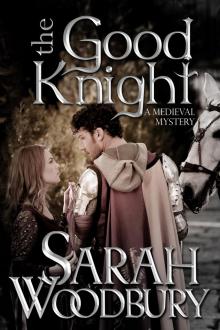 The Good Knight
The Good Knight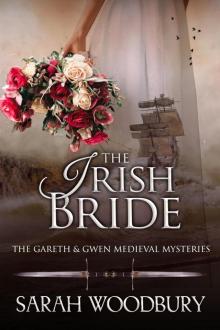 The Irish Bride
The Irish Bride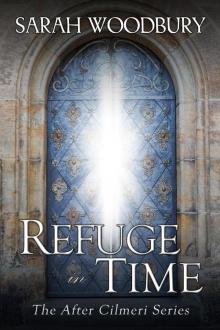 Refuge in Time
Refuge in Time Masters of Time
Masters of Time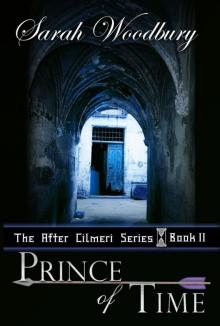 Prince of Time (Book Two in the After Cilmeri series)
Prince of Time (Book Two in the After Cilmeri series)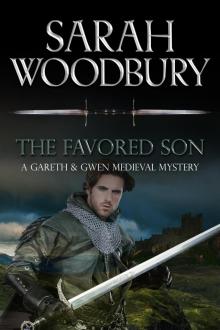 The Favored Son
The Favored Son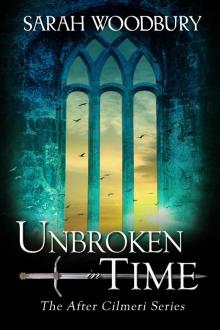 Unbroken in Time
Unbroken in Time![[The Lion of Wales 01.0] Cold My Heart Read online](http://i1.bookreadfree.com/i/03/22/the_lion_of_wales_01_0_cold_my_heart_preview.jpg) [The Lion of Wales 01.0] Cold My Heart
[The Lion of Wales 01.0] Cold My Heart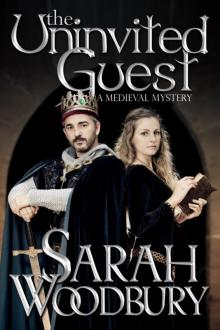 The Uninvited Guest
The Uninvited Guest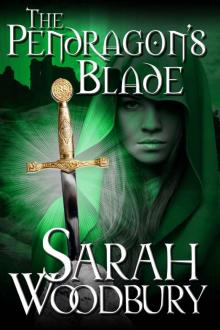 The Pendragon's Blade (The Last Pendragon Saga Book 2)
The Pendragon's Blade (The Last Pendragon Saga Book 2)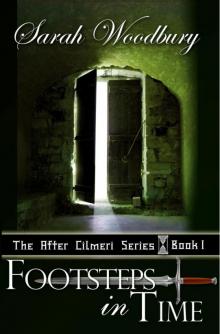 Footsteps in Time
Footsteps in Time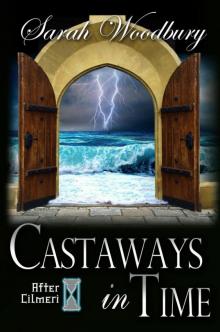 Castaways in Time (The After Cilmeri Series)
Castaways in Time (The After Cilmeri Series) Winds of Time
Winds of Time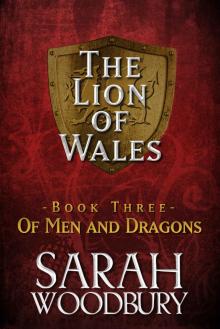 Of Men and Dragons (The Lion of Wales Book 3)
Of Men and Dragons (The Lion of Wales Book 3) Champions of Time
Champions of Time The Pendragon's Challenge (The Last Pendragon Saga Book 7)
The Pendragon's Challenge (The Last Pendragon Saga Book 7)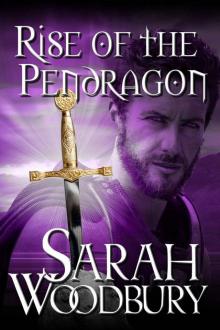 Rise of the Pendragon (The Last Pendragon Saga Book 6)
Rise of the Pendragon (The Last Pendragon Saga Book 6)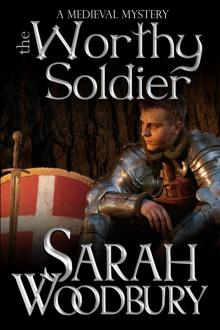 The Worthy Soldier
The Worthy Soldier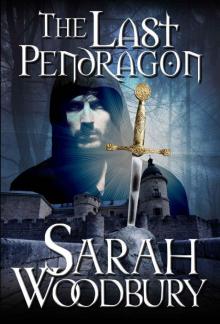 The Last Pendragon (The Last Pendragon Saga Book 1)
The Last Pendragon (The Last Pendragon Saga Book 1)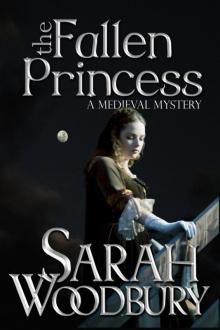 The Fallen Princess
The Fallen Princess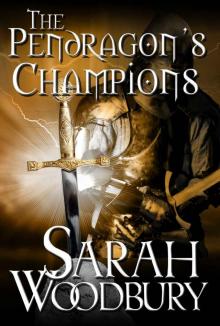 The Pendragon's Champions (The Last Pendragon Saga Book 5)
The Pendragon's Champions (The Last Pendragon Saga Book 5)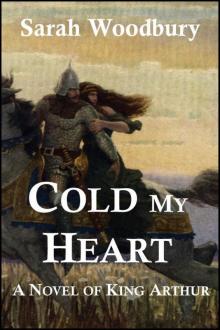 Cold My Heart: A Novel of King Arthur
Cold My Heart: A Novel of King Arthur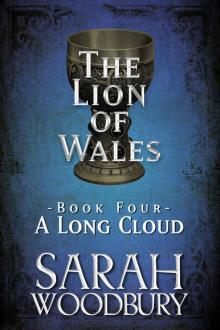 A Long Cloud (The Lion of Wales Book 4)
A Long Cloud (The Lion of Wales Book 4)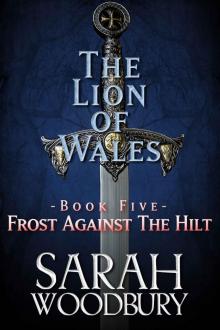 Frost Against the Hilt (The Lion of Wales Book 5)
Frost Against the Hilt (The Lion of Wales Book 5)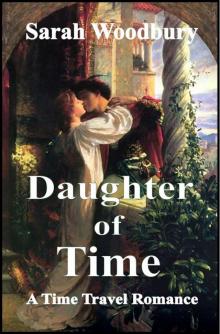 Daughter of Time: A Time Travel Romance
Daughter of Time: A Time Travel Romance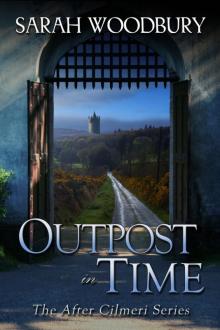 Outpost in Time
Outpost in Time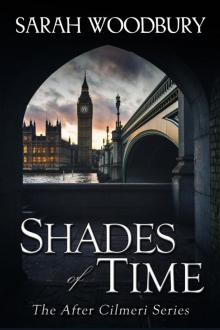 Shades of Time kobo
Shades of Time kobo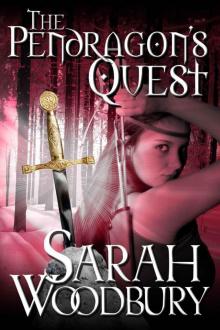 The Pendragon's Quest (The Last Pendragon Saga Book 4)
The Pendragon's Quest (The Last Pendragon Saga Book 4)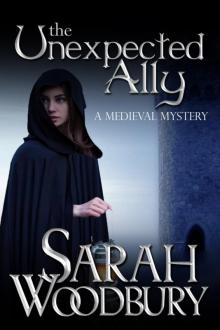 The Unexpected Ally
The Unexpected Ally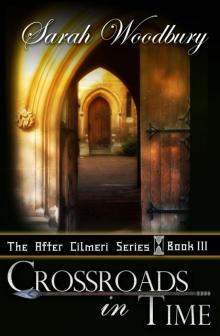 Crossroads in Time (The After Cilmeri Series)
Crossroads in Time (The After Cilmeri Series)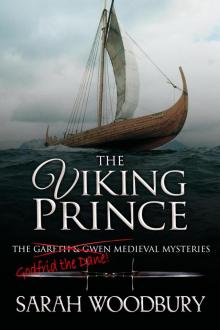 The Viking Prince
The Viking Prince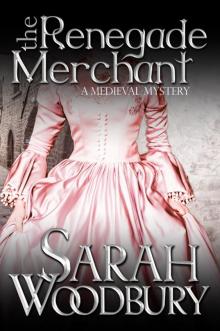 The Renegade Merchant
The Renegade Merchant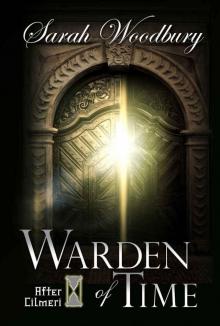 Warden of Time (The After Cilmeri Series Book 8)
Warden of Time (The After Cilmeri Series Book 8)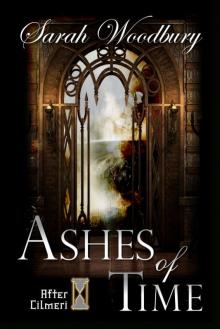 Ashes of Time (The After Cilmeri Series)
Ashes of Time (The After Cilmeri Series)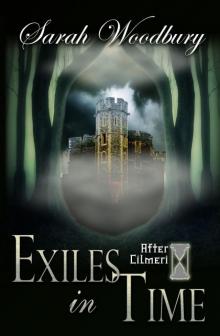 Exiles in Time (The After Cilmeri Series)
Exiles in Time (The After Cilmeri Series)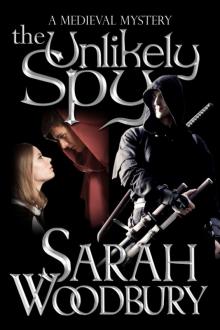 The Unlikely Spy
The Unlikely Spy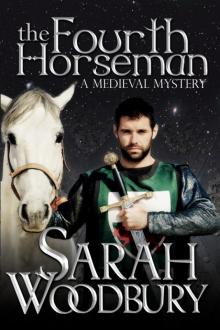 The Fourth Horseman
The Fourth Horseman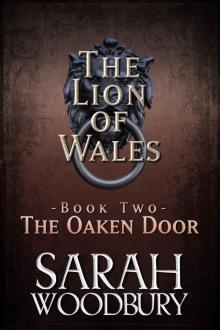 The Oaken Door (The Lion of Wales Book 2)
The Oaken Door (The Lion of Wales Book 2) Song of the Pendragon (The Last Pendragon Saga Book 3)
Song of the Pendragon (The Last Pendragon Saga Book 3) Champions of Time (The After Cilmeri Series, #13)
Champions of Time (The After Cilmeri Series, #13)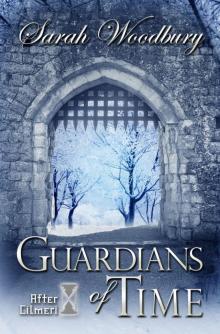 Guardians of Time
Guardians of Time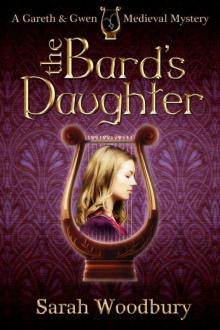 The Bard's Daughter (A Gareth and Gwen Medieval Mystery)
The Bard's Daughter (A Gareth and Gwen Medieval Mystery)